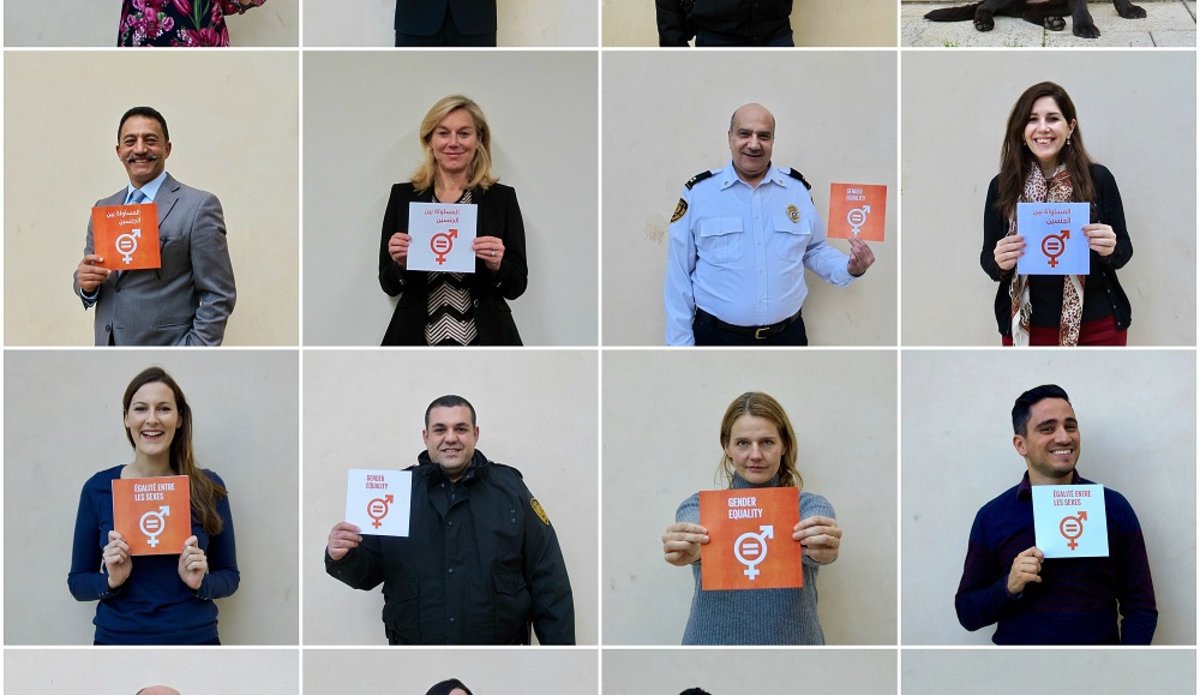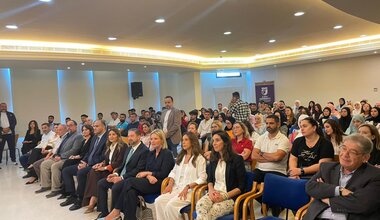Op-Ed: Investing in Women´s Empowerment
By Philippe Lazzarini
Today we celebrate international women´s day, a day that was first observed in 1909, and has since grown in importance and scope. While the early calls for women´s rights to vote have been heard, the day continues to be important as gender equality has still not been achieved globally. This year, the United Nations theme for International Women´s Day is “Women in the Changing World of Work: Planet 50-50 by 2030”.
Based on the Sustainable Development Goals principles of leaving no one behind, this year’s theme recognizes the challenges women face in the labor market, be that access to decent employment, an opportunity to advance in their careers once they do, and a right to equal wages. It also recognizes the unpaid care work that women are often doing, but that is not recognized or remunerated financially.
For the last twenty years, there have been more women than men attending university in Lebanon. Women make up half of graduates in social sciences, business and law, and are not anymore confined to certain stereotypical fields. For example, Lebanese women represent over 60 % of graduates in sciences. It is therefore striking that female labor force participation stands at only 26% while that of men is 76.4%.
The high discrepancy between men and women in the labor force is, however, not due to a legislative environment that would stop women from working, attaining university degrees or otherwise furthering their skills. In fact, the Lebanese constitution is grounded in equality, stating clearly that this is a nation with “respect for social justice and equality of rights and duties among all citizens without discrimination.” Rather, it is because of a social barrier or family obligations that prevent women from fully engaging in all aspects of society.
While policies in Lebanon do not prevent women´s engagement in the workforce, they are also not directly encouraging participation. Lebanon does not, for example, have a quota on female board members in the private sector. Companies do not apply the women´s empowerment principles, developed by Global Compact and UN Women against which companies can measure their own leadership on gender equality.[1] This includes creating an enabling environment that promotes women and provides them with opportunities for professional growth.
There is also a need to address the social barrier that hinders women´s active and equal engagement. Women continue to be the main caretakers, and the burden of the household is not shared equally among its adult members. Research has found that, women´s unpaid time burdens are significant with an average of 60 hours of unpaid work per week.
Studies have shown that inclusion of women in the workforce does yield more productive results. As an example, an analysis done by Catalyst of Fortune 500 companies found that those with the greatest representation of women in management positions delivered a total return to shareholders that was 34 per cent higher than for companies with the lowest representation.[2] We also know that the GDP of a nation increases more when women are equally engaged in the workforce, and receive equal pay. And research has also shown that gender equality is a stronger predictor of a state’s peacefulness than its level of democracy or gross domestic product. Where women are more empowered, the state is less likely to experience conflict.
When it comes to political representation, as the percentage of women in parliament increases by five percent, a state is five times less likely to use violence when faced with an international crisis. It is also less likely to abuse human rights, commit torture, or wrongfully imprison its citizens. It is quite simply in the interest of any country that wishes to experience peace and prosperity to ensure the equal participation of women at all levels of society.
I genuinely believe that Lebanon has the ability to lead the women´s empowerment agenda in the region. It is a country with a great wealth of talented female leaders – be that entrepreneurs, business women or women in the arts. Yet, much more needs to be done to break the infamous glass ceiling. Women are underrepresented in the political sphere with only 3% women in parliament - one of the lowest shares of women in parliament in the world - and only one female minister. Combined with a low representation in municipal councils, and the absence of any special measures, Lebanon is ranked as the second lowest country in terms of women’s political representation, according to the Global Gender Index. Even if regional averages are not promising (16%), Lebanon is lagging far behind some Middle Eastern countries that have made great strides, for example Algeria (with 31.6%) and Tunisia (31.3%). These percentages did not come about automatically. In both MENA countries, women’s participation in decision-making is a constitutional requirement. This, in turn, laid the basis for the adoption of special measures – simply put, gender quotas. Overall, more than half of the 22 members of the League of Arab States - including Egypt, Jordan, Morocco, Palestine, and Saudi Arabia - have already adopted some form of special measure.
To break the various barriers to women’s full and equal participation, we need a collective effort to promote, support and celebrate the tremendous leadership of women in all fields. As such, on this day, it is time to reflect on how we can all both individually and collectively contribute to creating a paradigm change to enable reform of the structures and behavior that hamper gender equality.
Philippe Lazzarini is the United Nations Deputy Special Coordinator, Resident and Humanitarian Coordinator in Lebanon
 UN
UN





